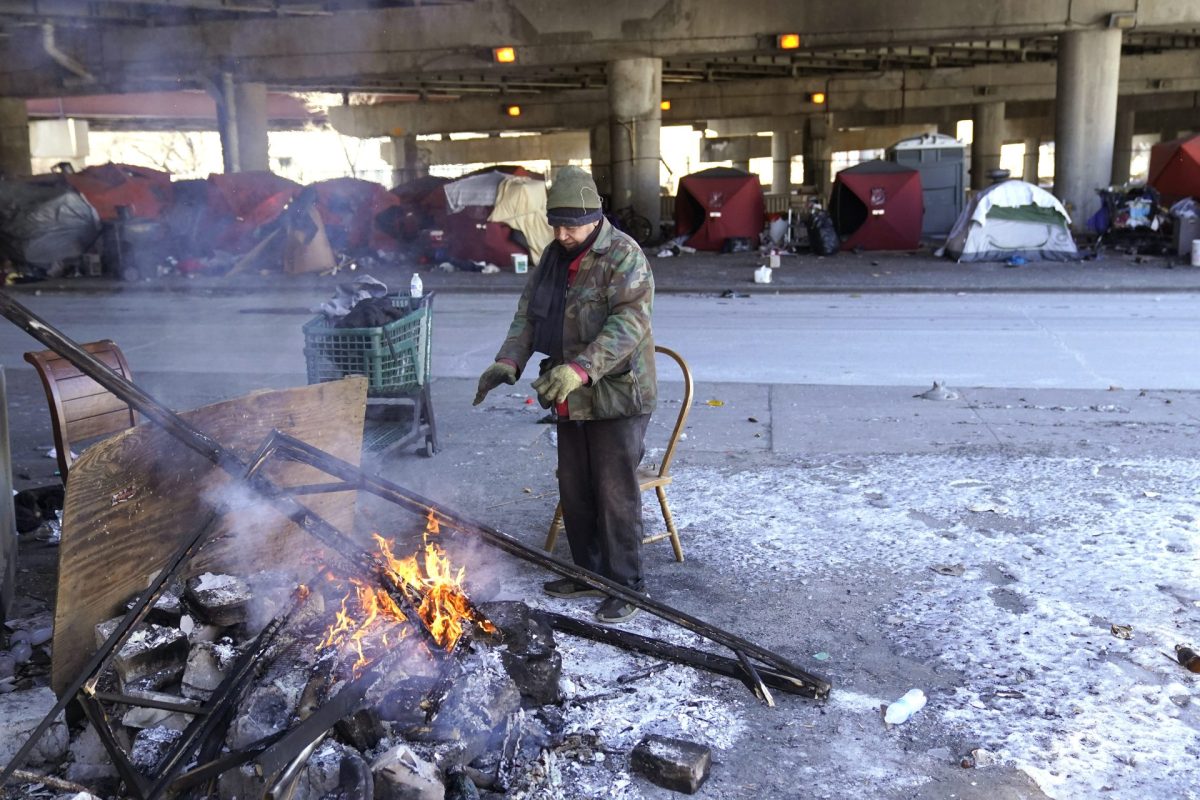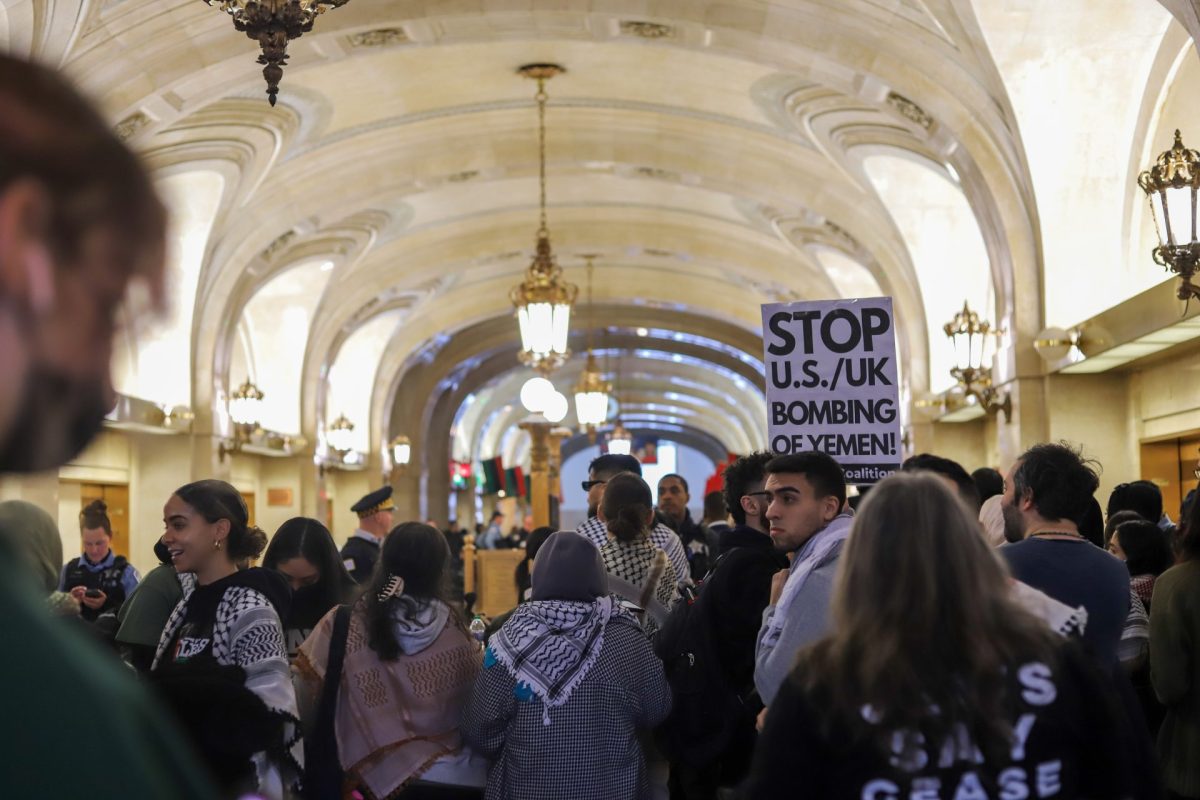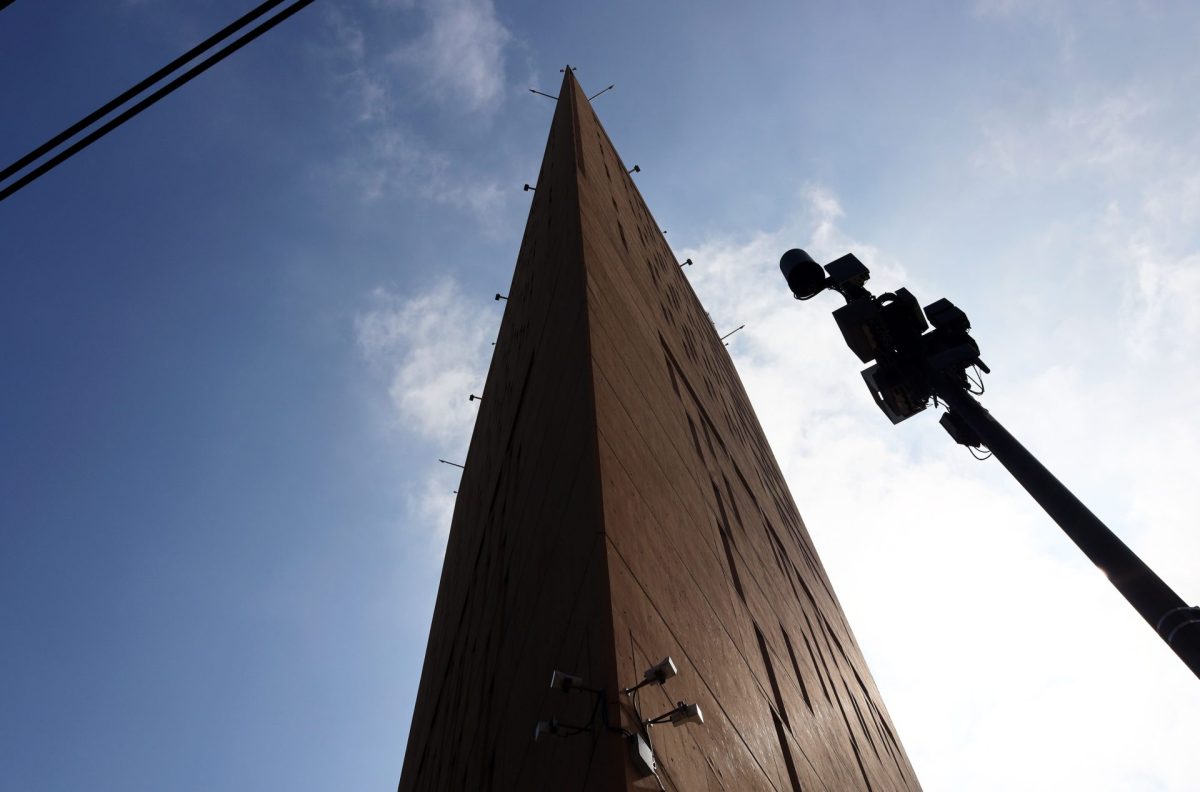Chicago endured a cold spell last week, bringing snow and below-freezing temperatures dipping into the negatives with extreme windchill.
With these conditions, community organizers and residents raise concerns about the City’s estimated 68,400 people experiencing homelessness and the resources that exist to combat these dangerous conditions to ensure their health and safety.
When temperatures drop below 32 degrees, the city makes warming centers available in across six community service locations throughout Chicago, which are open Monday–Friday, 9 a.m.–5 p.m.
With wind chills as low as minus 30 degrees last week, an additional warming center was opened at Harold Washington Library, open 24 hours for both Chicago residents facing homelessness and newly arrived migrants.
Desirie McKay, director of field education at DePaul and a social worker with experience in social services throughout the Chicagoland area, said many regulations for warming centers and shelters accommodate for the extreme weather.
McKay said that hours for shelters and warming centers are often limited, and close in the evening. “When it’s below zero, they don’t have those regulations in place … to allow folks to stay and not be out in the cold,” McKay said.
Shelters are also a resource used by Chicago’s houseless population during extreme weather.
Tiffany Connolly, program coordinator of the Ruff Institute of Global Homelessness, an organization driving a global movement to end street homelessness, believes that shelters are essential to providing resources, such as a bed and a hot meal for the homeless.
Connolly identifies the approximate 100 overnight shelters across the City and Chicago Continuum of Care, an organization that coordinates housing and services funding for homeless families and individuals as ways that Chicago’s houseless community can receive support.
“The City encourages that requests for shelter be made by calling 311,” Connolly said.
However, these resources are not always available when it comes to limited hours or space.
Jennifer Kouba, a DePaul professor of peace, justice and conflict studies says that many unhoused people have to find other places to stay warm.
Kouba identified trains, public libraries and emergency rooms as places where those facing homelessness find shelter during dangerously cold temperatures. Community outreach groups frequent places like trains to try to offer resources and aid, such as the Night Ministry.
“You’re seeing an influx of people who are unhoused staying on the trains and organizations going to the CTA to provide services directly at some of the stops,” Kouba said.
Mayor Brandon Johnson also pushed back his administration’s newly instated 60-day stay limit for migrants given the frigid temperatures.
The new deadline that migrants must leave the shelters they have been staying in for 60 days is Feb. 1.
Besides warming centers and certain limits being lifted from shelters, the City also urges people to check on their loved ones and neighbors amidst these conditions.
Chicagoans can also use the 311 number to request a well-being check on a neighbor and for information on warming areas.
“We’re also called on when we’re out and about and see homeless folks to share the resources we know for them,” McKay said.
However, during McKay’s time in the social services field and in direct homeless outreach, she said that those experiencing homelessness are sometimes apprehensive about utilizing these resources.
“A lot of these individuals have been involved in systems that have betrayed them from their lens,” McKay said. “You will have folks that will refuse to go to shelters, you’ll have folks even in these freezing temperatures that will say ‘no thank you’ because they’ve been burned by a system.”
The City’s inconsistent allocation of these resources throughout the year can also impact the trust that houseless individuals have for these services, according to McKay.
“We must consider that people are homeless all year around and not just in the winter,” McKay said. “I would assume that some homeless people feel that ‘you care about us now because it’s cold…but do you really care about us any other time of the year?”
You will have folks that will refuse to go to shelters, you’ll have folks even in these freezing temperatures that will say ‘no thank you’ because they’ve been burned by a system.”
— Desirie McKay, director of field education at DePaul
Various policies have been enacted under Mayor Brandon Johnson, such as an executive order Oct. 3 establishing the City’s first Chief Homeless Officer, put in place to address the complexity of homelessness and create policy and coordination across City departments.
The City Council has also approved a referendum on the Bring Chicago Home ordinance, which will be decided on by Chicago voters on March 19.
Bring Chicago Home suggests implementing a one-time tax on properties over $1 million when they are sold to create consistent revenue to provide permanent affordable housing for people experiencing homelessness.
“The Bring Chicago Home initiative is definitely a way for students to get involved to create a pipeline of funding for affordable housing and homeless services,” Kouba said. “It’s great to see the current administration and some elected officials really advocating to move that forward.”
Recognizing the intersectionality of issues that comes with experiencing homelessness is also important in the conversation, according to McKay, such as validating the mental health impacts.
“Housing is a fundamental right, it is a basic need,” McKay said. “If you take a basic need away from someone, that’s trauma within itself.”
Connolly also points to the intersections homelessness has with public health, housing affordability and unemployment, “Increased coordination among systems, resources and data across these sectors,” is another way the City can ensure they’re allocating the proper resources.
McKay says that many of those experiencing homelessness face substance abuse or mental health issues, along with significant traumas that arise from navigating the barriers of being houseless and trying to find permanent housing.
According to the Substance Abuse and Mental Health Services Administration, 60% of those facing chronic homelessness struggle with mental health issues.
“There’s a lot of trust that’s been broken, and really rebuilding that trust with that community, caring for them consistently throughout the seasons and really working to eliminate those barriers that exist for homeless people,” McKay said.
DePaul students can also offer their time and resources in many ways to offer aid to those experiencing homelessness in Chicago, such as volunteering at local food pantries or soup kitchens, according to Connolly.
This work begins with changing the rhetoric and attitude towards those experiencing homelessness, and ensuring that students uplift their voices, according to Connolly.
“We encourage students to be an ally and when opportunities arise, help platform people with lived experiences of homelessness so their knowledge is centered in the work to address homelessness,” Connolly said.
Kouba also calls upon a change in rhetoric among elected officials and Chicago residents when discussing the unhoused community.
“These are people, these are human beings,” Kouba said. “Having leaders understand that unhoused residents are also their constituents, and also encouraging housed residents that we all live here and have a right to housing, and that’s truly the baseline to be able to thrive.”




